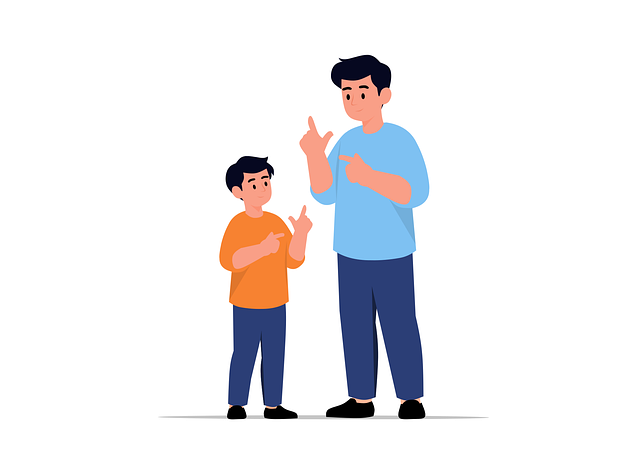Oregon's child welfare system thrives on a robust legal framework and comprehensive support for its attorneys. These professionals, equipped with access to extensive databases, workshops, and collaborative forums, navigate complex cases while upholding due process rights. They leverage their expertise in state laws and regulations to advocate for at-risk youth, ensuring each client receives informed decision-making tailored to their case. Specialised legal resources, an attorney support network, and professional development opportunities empower Oregon child welfare attorneys to protect and support minors' well-being effectively.
Oregon’s child welfare system presents unique challenges for attorneys navigating its complex legal framework. An Oregon child welfare attorney plays a pivotal role in protecting the rights of vulnerable children and families. This comprehensive guide explores essential resources available to these specialists, from understanding state laws to accessing specialized support networks and staying updated through professional development opportunities. By leveraging these resources, Oregon child welfare attorneys can provide optimal legal representation.
- Understanding Oregon's Child Welfare Legal Framework
- The Role of an Attorney in Oregon Child Welfare Cases
- Accessing Specialized Legal Resources for Child Welfare Attorneys in Oregon
- Building a Support Network: Connecting with Fellow Oregon Child Welfare Attorneys
- Essential Tools and Technology for Oregon Child Welfare Lawyers
- Continuous Professional Development for Oregon Child Welfare Attorneys
Understanding Oregon's Child Welfare Legal Framework

Oregon’s child welfare system operates within a robust legal framework designed to protect and nurture at-risk youth. Understanding this intricate web of laws is pivotal for anyone involved, especially Oregon child welfare attorneys who serve as advocates for children and families. The state’s statutes and regulations lay out procedures for removal, placement, and reunification, ensuring due process rights for all parties involved. These legal resources in Oregon provide a solid foundation for practitioners to navigate complex cases effectively.
Attorneys supporting child welfare efforts in Oregon have access to an extensive professional network and a variety of attorney tools. This includes state-specific legal databases, educational workshops, and collaborative forums where experts share insights. By leveraging these resources, Oregon child welfare attorneys can stay abreast of legislative changes, explore innovative strategies, and connect with fellow professionals to foster informed decision-making in the best interests of the children they serve.
The Role of an Attorney in Oregon Child Welfare Cases

In Oregon child welfare cases, an attorney plays a pivotal role in advocating for the best interests of the child. They are instrumental in navigating complex legal systems and ensuring that all parties’ rights are protected. An Oregon child welfare attorney leverages their expertise to guide clients through intricate proceedings, from initial investigations to court appearances. By utilizing professional resources and an extensive attorney support network, they can provide invaluable legal counsel tailored to each unique case.
These attorneys possess in-depth knowledge of state laws and regulations pertaining to child welfare, enabling them to challenge or uphold decisions made by social services. They are well-versed in creating legal strategies that aim to resolve cases efficiently while prioritizing the health and safety of the child. Through access to attorney tools and resources specific to Oregon, they stay updated on legal precedents and changes in policies, ensuring their clients receive the most effective representation possible.
Accessing Specialized Legal Resources for Child Welfare Attorneys in Oregon

Oregon child welfare attorneys require access to specialized legal resources and an extensive attorney support network to effectively advocate for their clients. The state’s intricate child welfare system demands a deep understanding of laws, regulations, and policies that specifically govern minors’ protection and well-being. Thankfully, Oregon offers a wealth of professional resources tailored to these legal professionals.
Attorneys can leverage robust online platforms and databases to access up-to-date information on case law, statutes, and administrative rules. Additionally, local bar associations and child advocacy groups facilitate connections with peers, fostering collaboration and knowledge sharing. These networks provide invaluable attorney tools, enabling Oregon child welfare attorneys to stay abreast of industry developments, best practices, and emerging legal strategies.
Building a Support Network: Connecting with Fellow Oregon Child Welfare Attorneys

Building a strong support network is essential for any Oregon child welfare attorney navigating the complexities of their work. Connecting with fellow legal professionals who share similar experiences and expertise in this specialized field can provide invaluable resources and tools tailored to Oregon’s unique child welfare laws and procedures. By fostering these relationships, attorneys can access a wealth of knowledge, best practices, and collaborative opportunities that enhance their representation of clients and ultimately improve outcomes for vulnerable children.
Professional associations, local bar chapters, and statewide networks dedicated to child welfare law offer excellent platforms for Oregon child welfare attorneys to connect and build their support network. These groups organize events, workshops, and online forums where members can share insights, discuss challenging cases, and stay updated on legislative changes that impact their practice. Engaging in these communities allows legal professionals to create meaningful connections, find mentors, and tap into a diverse range of resources available within the Oregon child welfare attorney community.
Essential Tools and Technology for Oregon Child Welfare Lawyers

Oregon child welfare attorneys require a robust set of tools and technology to navigate complex legal landscapes effectively. With a constantly evolving legal system and a high volume of case-related documentation, staying organized and efficient is paramount. Cloud-based case management software becomes an indispensable resource for Oregon child welfare lawyers, allowing them to store and access files securely while facilitating collaboration with clients and colleagues.
Moreover, advanced legal research platforms are essential for keeping up with relevant statutes, court decisions, and regulatory changes specific to Oregon’s child welfare laws. These tools enable attorneys to quickly retrieve crucial information, saving valuable time that can be allocated to client advocacy. Additionally, secure communication channels ensure confidential discussions with clients and colleagues, maintaining the integrity of sensitive case details. An attorney support network comprising peers and legal professionals further enhances resources available to Oregon child welfare lawyers, fostering knowledge sharing and best practices within the field.
Continuous Professional Development for Oregon Child Welfare Attorneys

Oregon child welfare attorneys are expected to stay updated with the latest developments in their field due to the constant changes in laws and regulations related to child protection. Continuous Professional Development (CPD) is crucial for them to maintain expertise and deliver high-quality legal services. Many professional resources Oregon offer specialized training programs, workshops, and webinars tailored to address the unique challenges faced by child welfare attorneys.
These professional resources child welfare include online platforms that provide access to attorney tools Oregon, such as case law updates, practice guides, and model forms. By participating in these CPD activities, Oregon child welfare attorneys can expand their knowledge, enhance their skills, and connect with an attorney support network. This ensures they remain competent and equipped to navigate the complex landscape of child welfare law, ultimately benefiting their clients.






